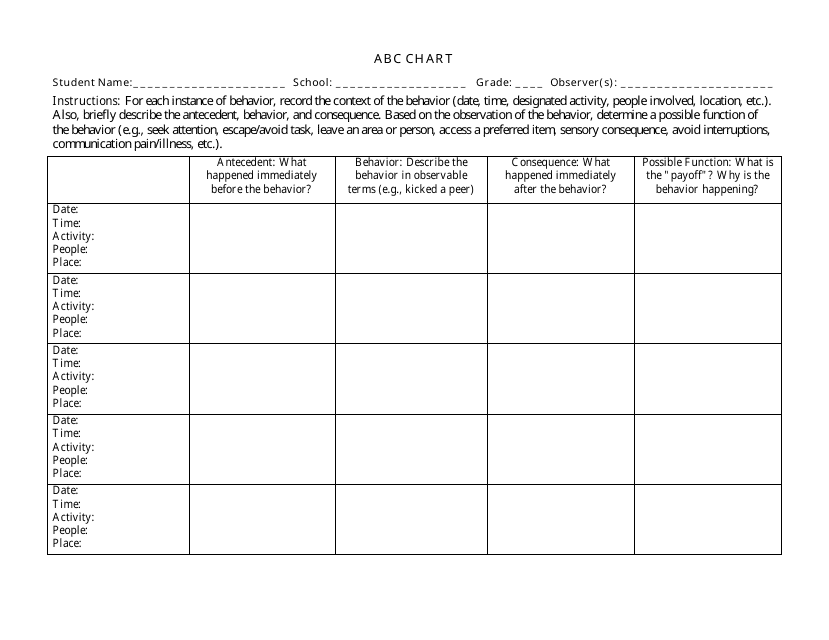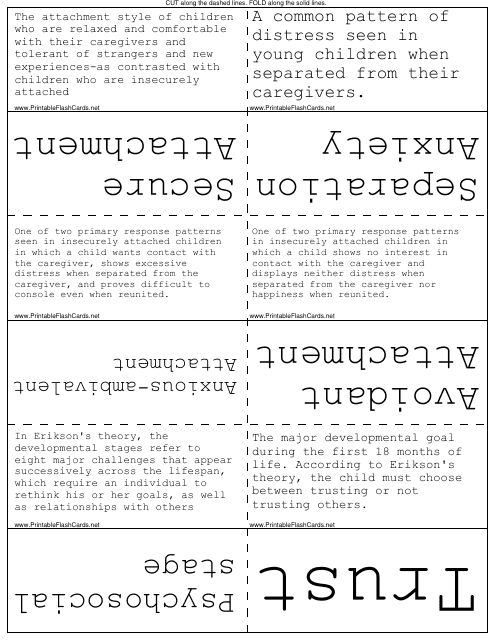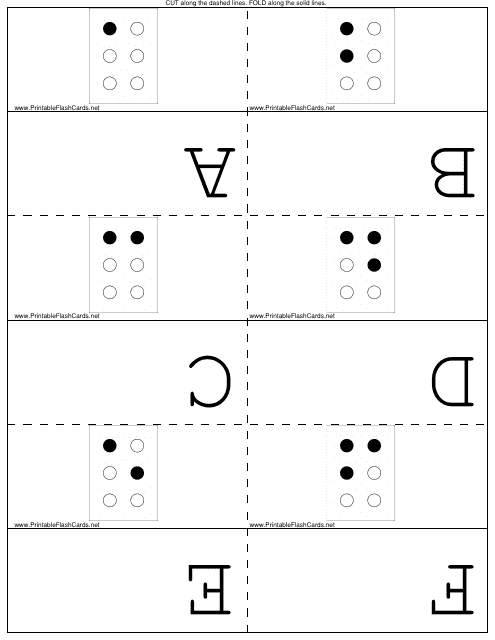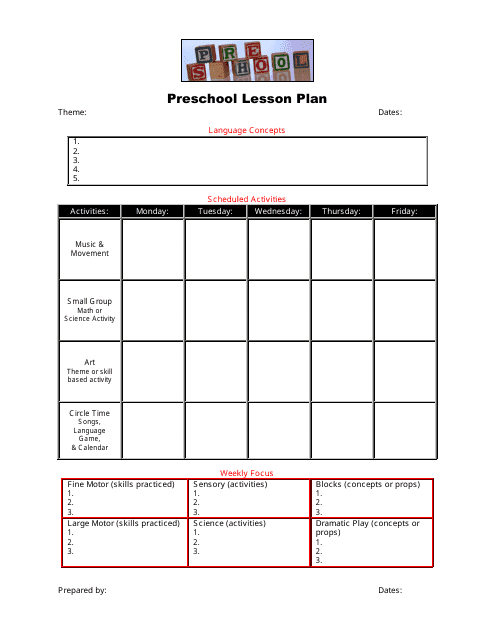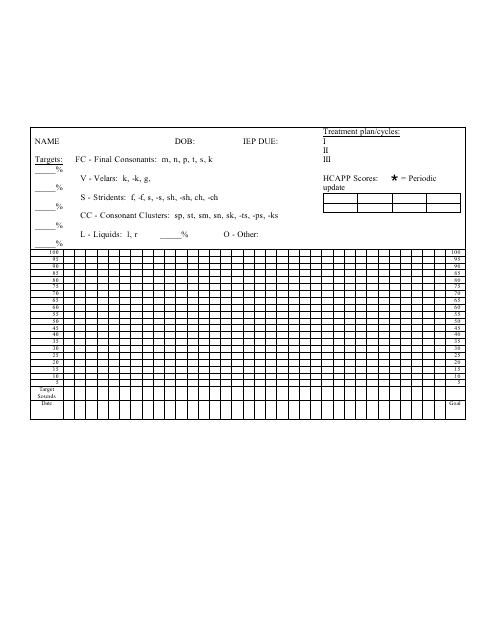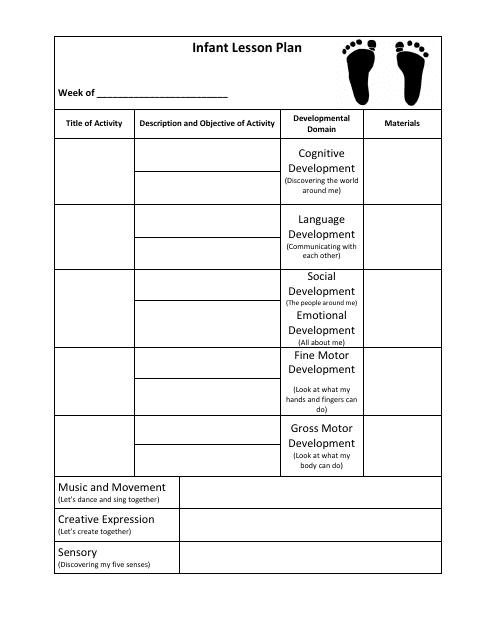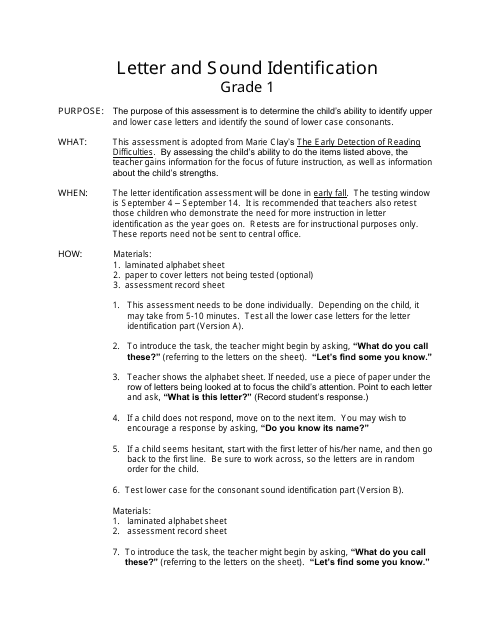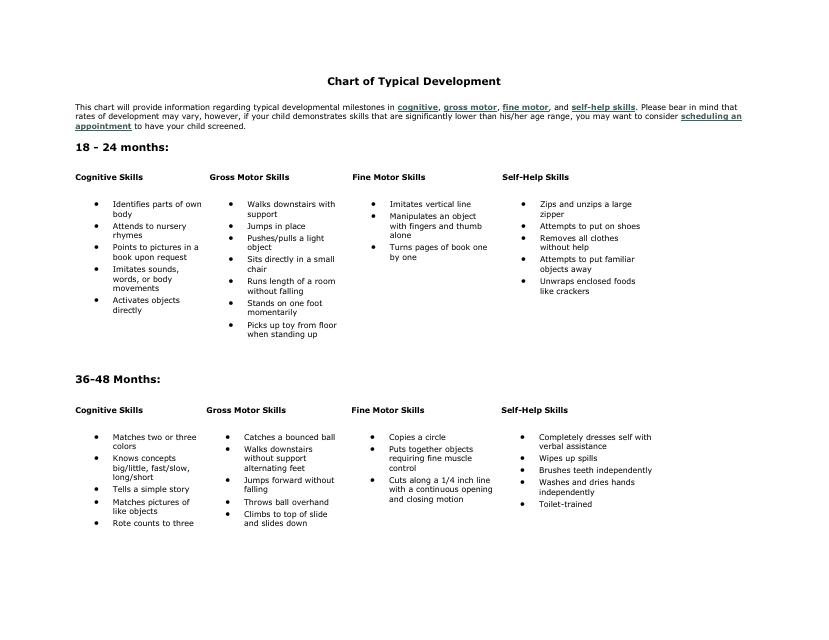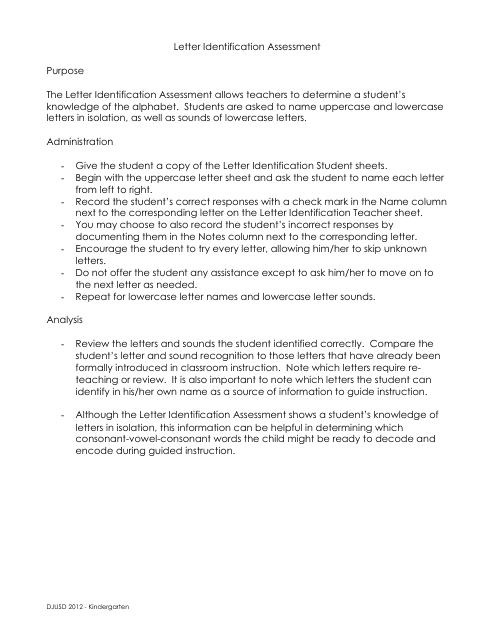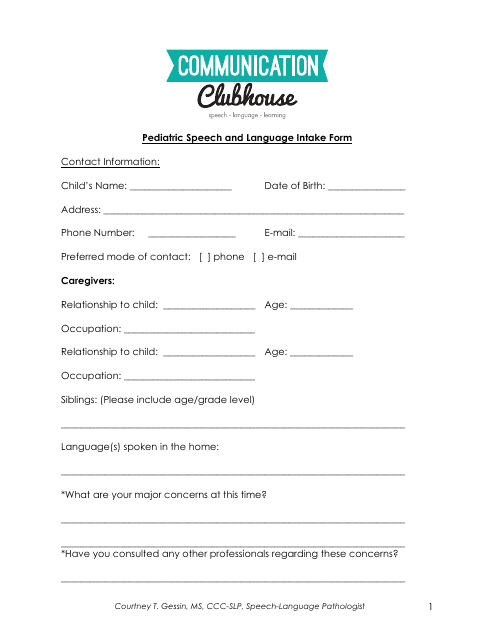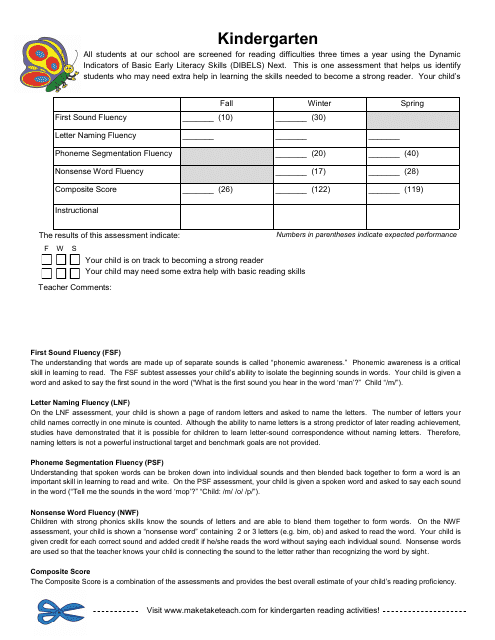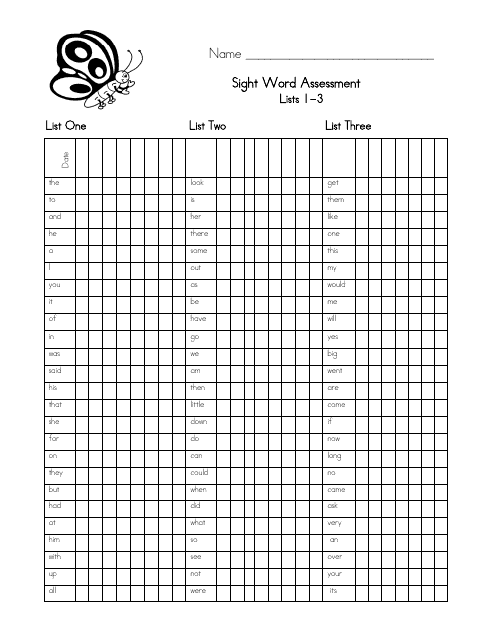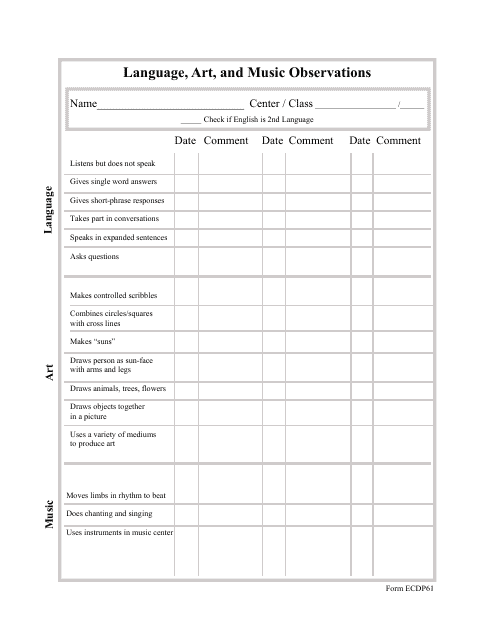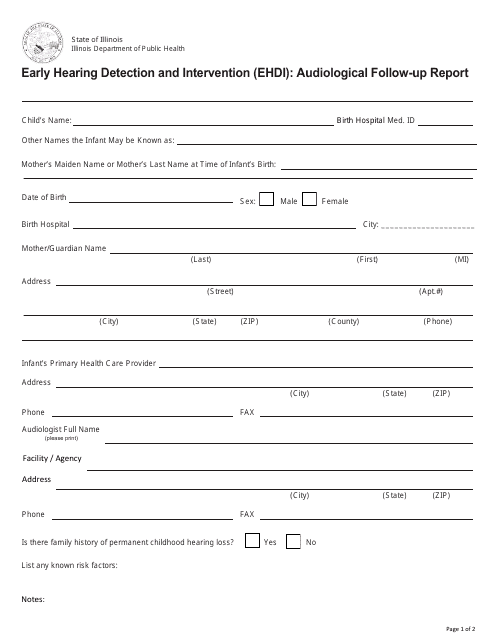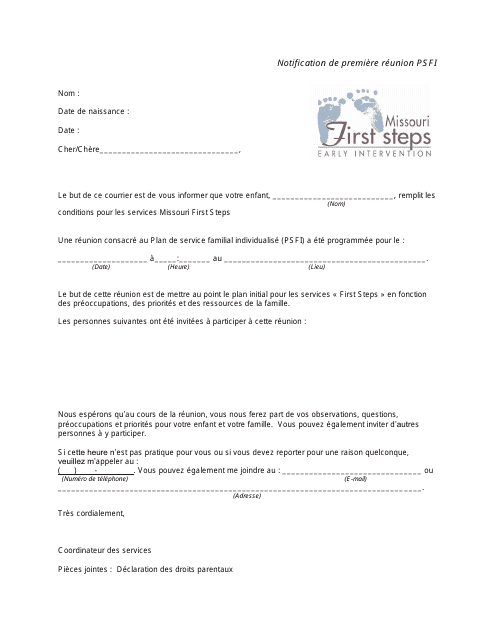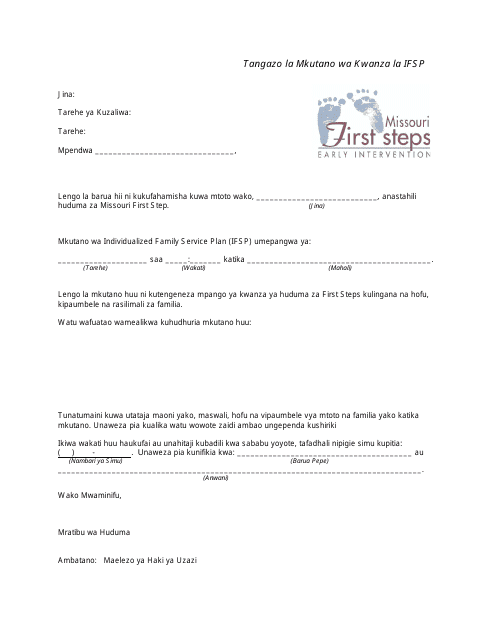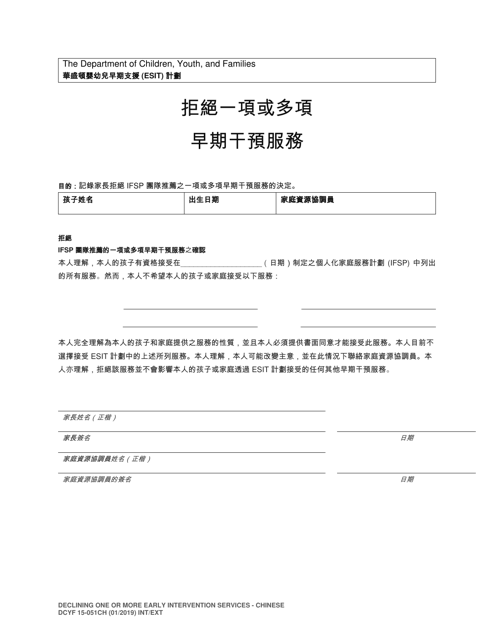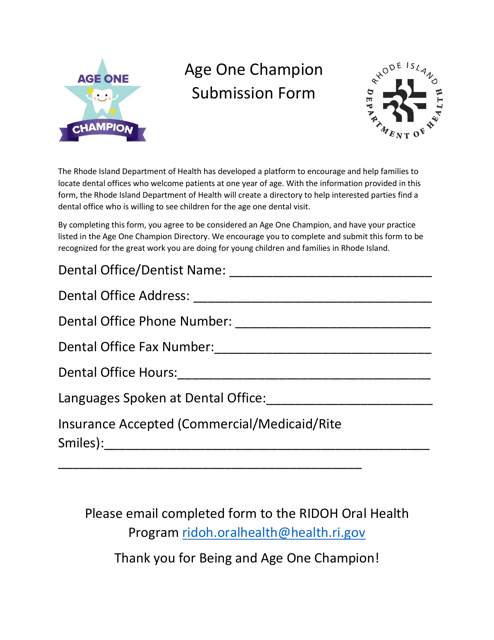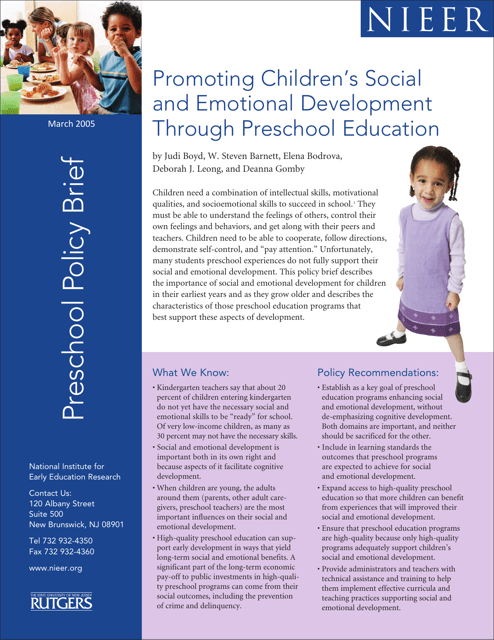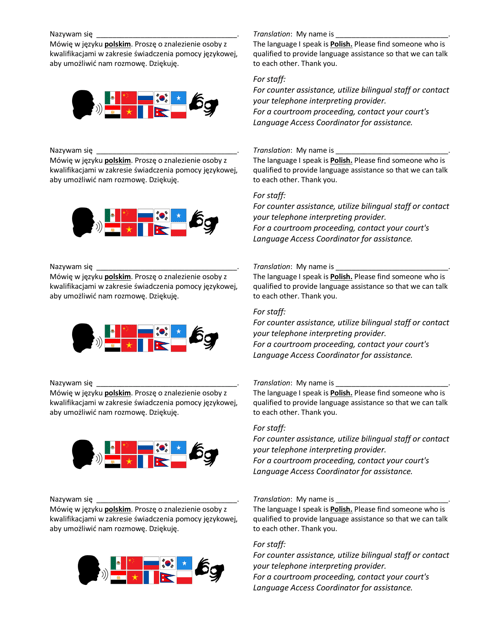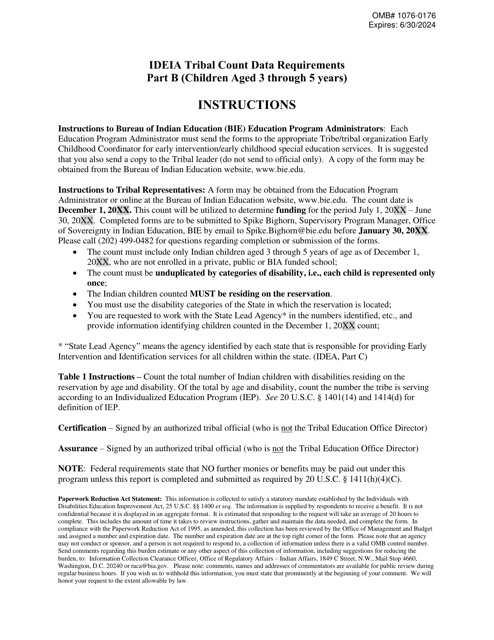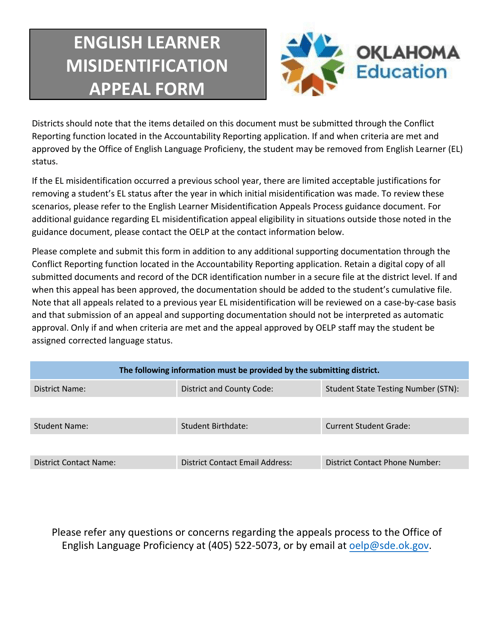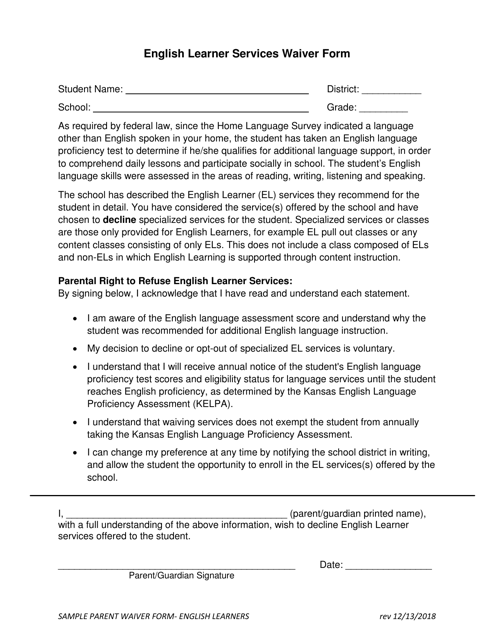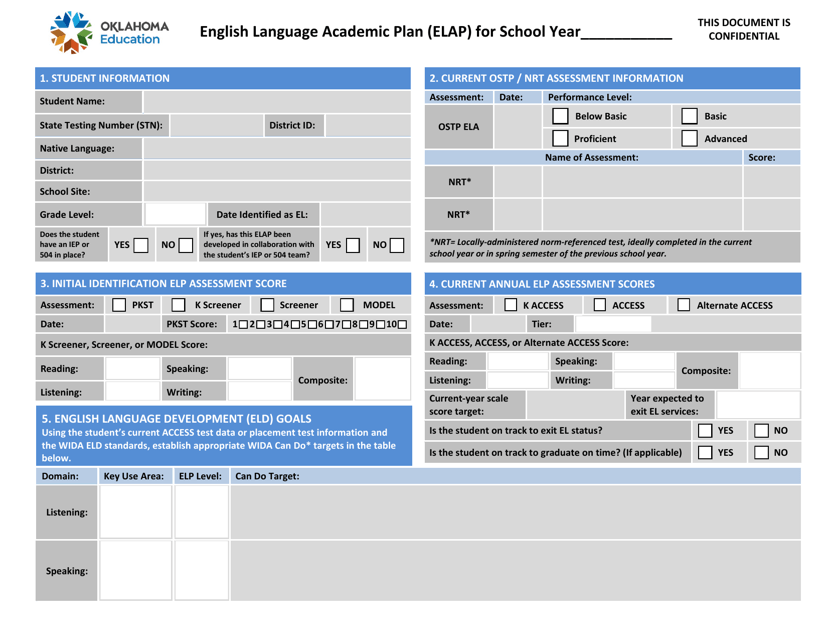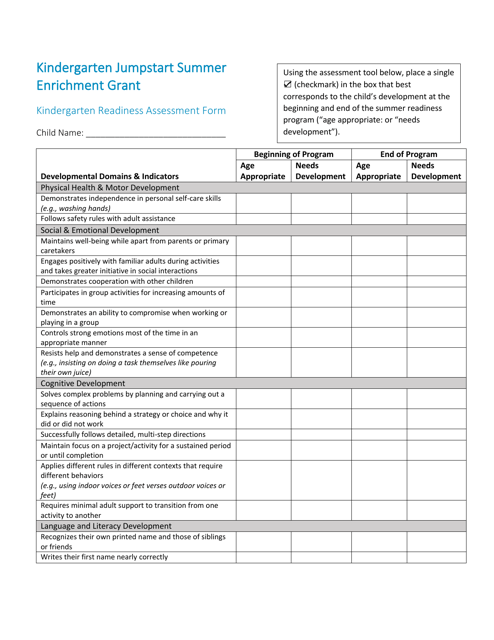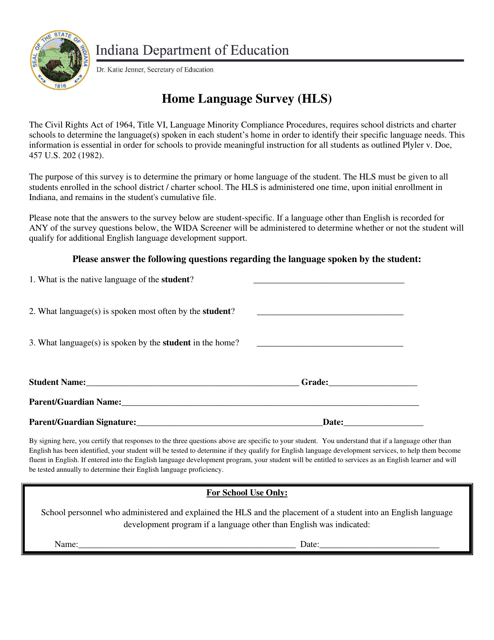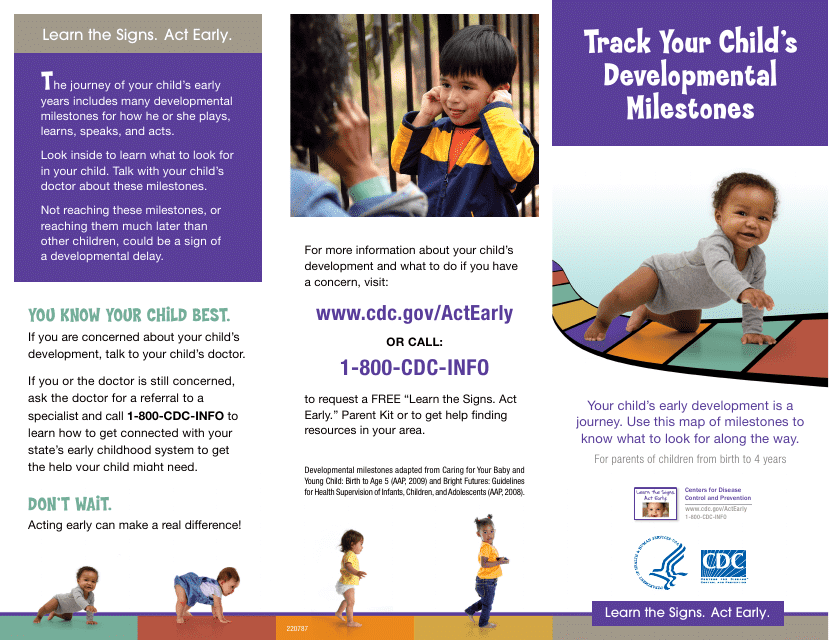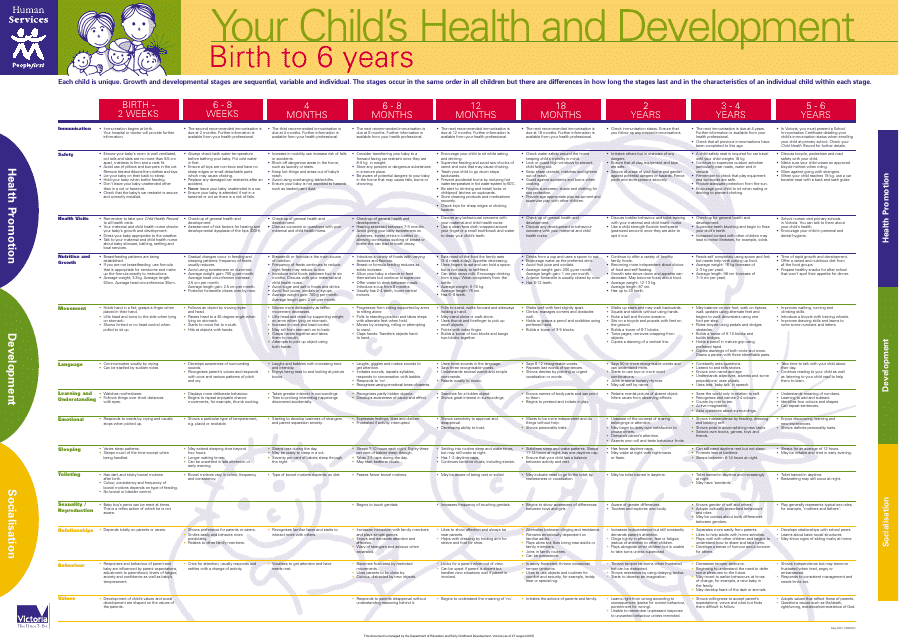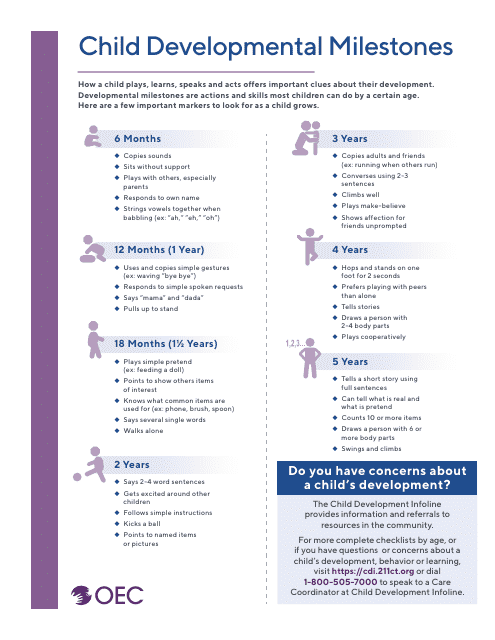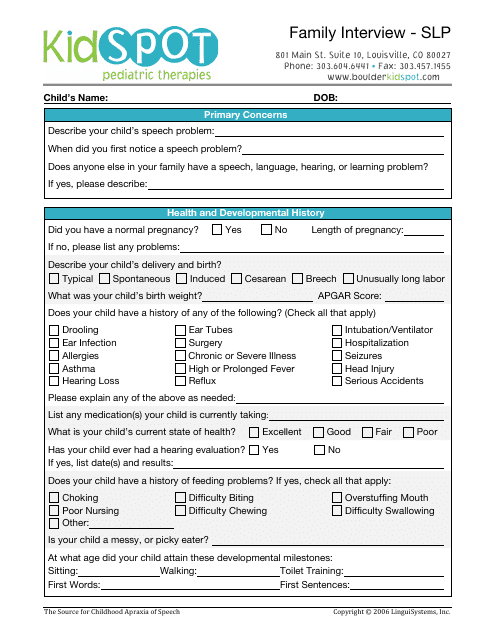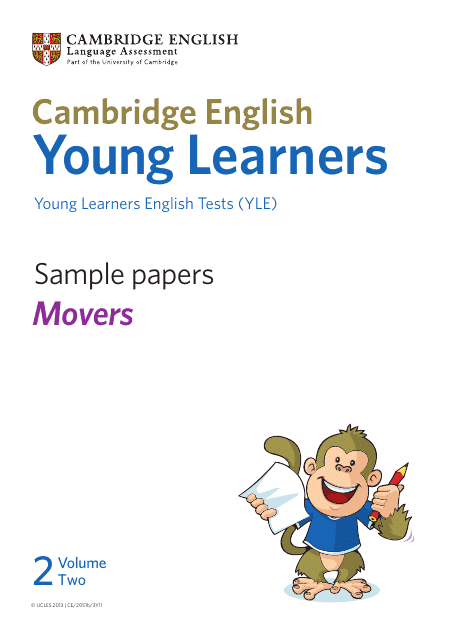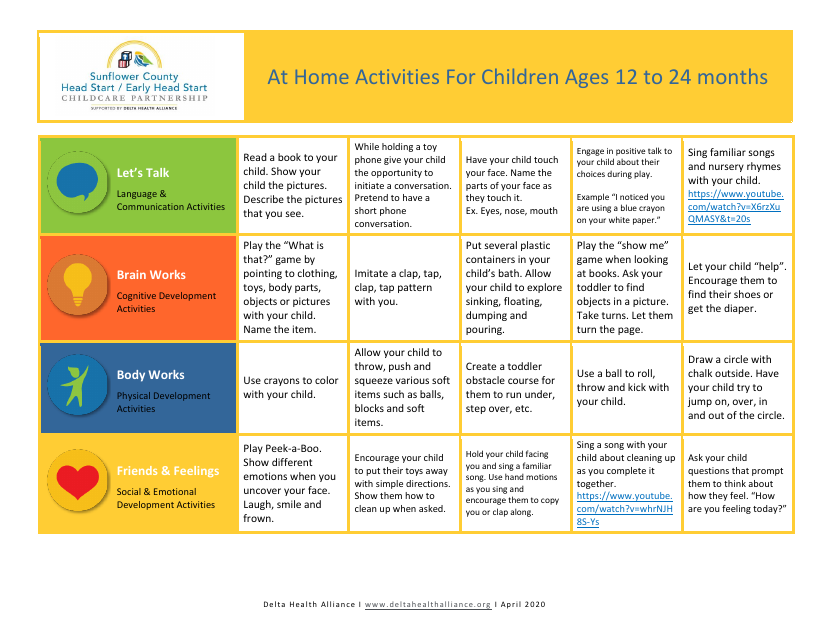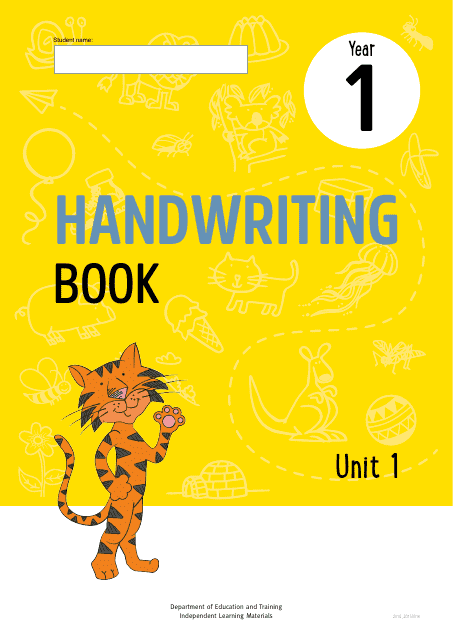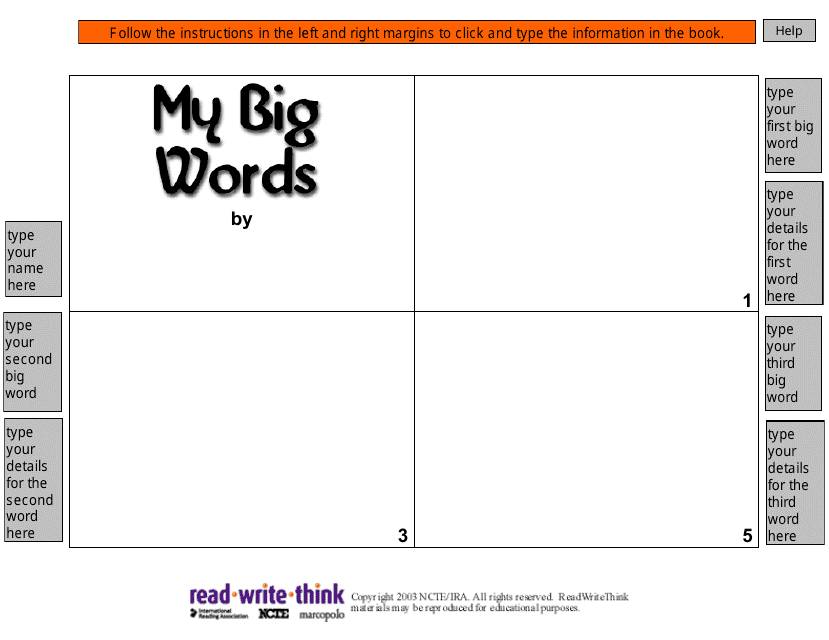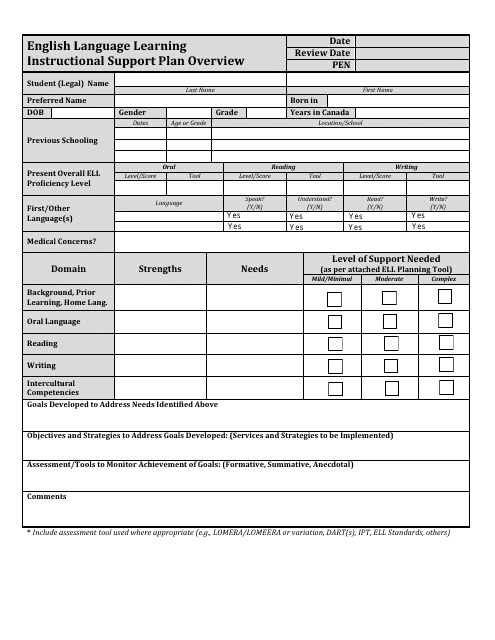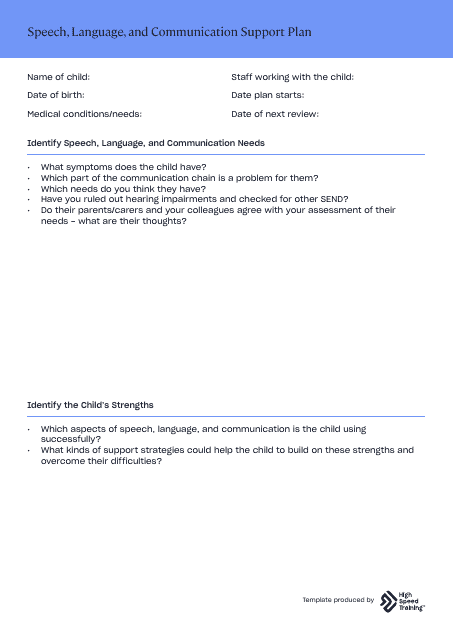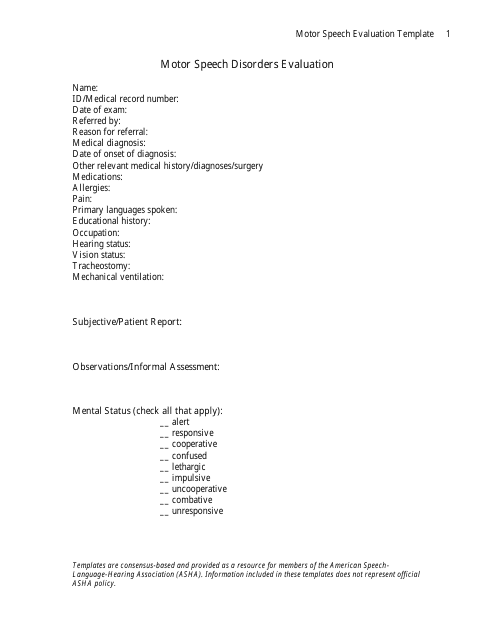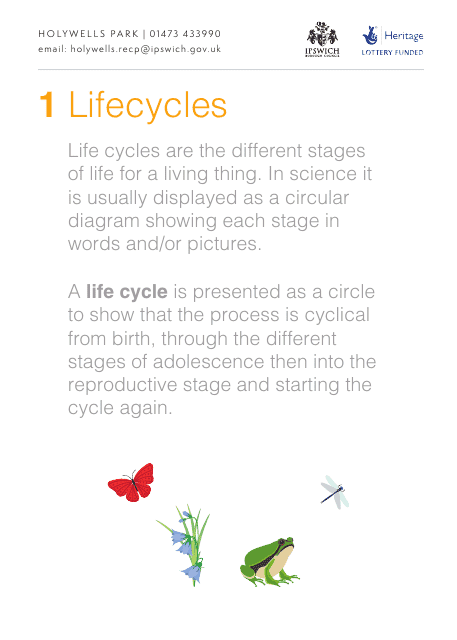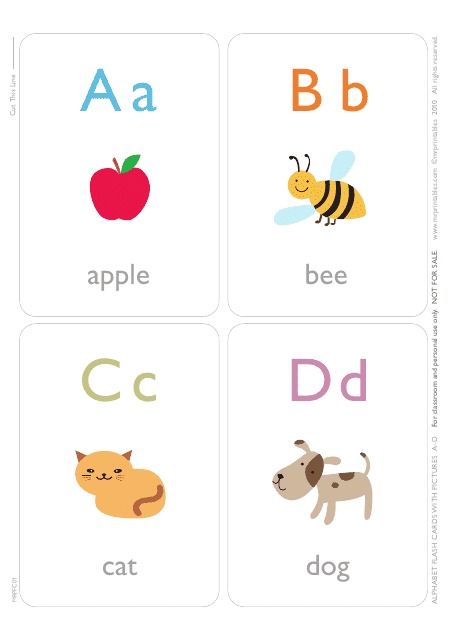Language Development Templates
Language Development Website
Welcome to our Language Development website, where we provide valuable resources and information to support the growth and progress of children's language skills. Our website offers a variety of tools, articles, and templates to assist parents, educators, and speech-language professionals in promoting language development in children.
Language development plays a crucial role in communication, social interaction, and academic achievement. By utilizing evidence-based practices and targeted interventions, we aim to facilitate the language skills of children at various stages of development. Our goal is to empower caregivers and professionals with the knowledge and tools needed to foster language growth in children.
Within our website, you will find a wide range of resources to support language development. Our collection includes intake forms, such as the Pediatric Speech and Language Intake Form, which facilitates the gathering of essential information for speech-language evaluations and therapy sessions. We also offer templates like "My Big Words Book Template" designed to create engaging activities that enhance vocabulary acquisition and storytelling.
Furthermore, our website provides access to research-based articles and guides. One such article titled "Promoting Children's Social and Emotional Development Through Preschool Education" offers insights into the connection between language development and emotional well-being. It provides practical strategies for educators and parents to foster social-emotional growth in young children.
For interactive learning, we offer resources like the Y-Initial Words Flashcards and Lowercase Letters Flashcards. These flashcards are designed to improve phonemic awareness and letter recognition, supporting children in their early literacy and language journey.
Through our Language Development website, we are committed to supporting individuals involved in children's language development. Whether you are a parent, teacher, or speech-language professional, our resources aim to enhance your understanding and implementation of effective language development strategies. Explore our website and access valuable tools to help children reach their full linguistic potential.
Documents:
62
This template is used to help students track their behavior or progress using an ABC (Antecedent-Behavior-Consequence) chart format. It allows students and teachers to identify patterns and causes of behavior and implement strategies for positive change.
This document is a set of flash cards designed to help parents and educators support and enhance child development. Each flash card focuses on a different aspect of child development such as language, motor skills, and cognitive abilities. Use these flash cards to engage children in fun and educational activities that promote their growth and learning.
This type of document provides templates for domino alphabet flash cards. They can be used by parents or teachers to help children learn the alphabet in a fun and interactive way.
This document is a template for creating lesson plans specifically designed for preschool aged children. It provides a structured format to outline activities, objectives, and materials to be used during each lesson.
This template is used for tracking progress in fluent speech development according to Rule 6, created by Carol Carpenter.
This document is a template used for recording phonology data. It helps linguists and researchers organize and analyze the sounds of a language.
This type of document is a template used for planning lessons for infants. It helps caregivers and educators create a structure for teaching and engaging with young children.
This document is a template for assessing letter and sound identification skills. It is used to evaluate a person's ability to recognize and distinguish between different letters and sounds. This assessment is commonly used in educational settings, particularly for young children who are learning to read.
This document provides a typical child development chart to track a child's progress in various areas of development such as physical, social, and cognitive skills. It helps parents and professionals understand and monitor a child's growth and development.
This document is a template for an assessment that helps identify the letter recognition skills of kindergarten students.
This form is used for evaluating the speech and language skills of pediatric patients at Communication Clubhouse.
This form is used for assessing basic early literacy skills in Kindergarten students. It provides dynamic indicators to measure their literacy progress.
This form is used for assessing a student's knowledge and recognition of sight words. It helps teachers determine the student's reading proficiency and identify areas of improvement.
This document is used for observing and analyzing the language, art, and music in a particular context or setting. It provides a template for recording observations and reflections on these three areas of study.
This Form is used for reporting the results of audiologic follow-up in the Early Hearing Detection and Intervention (EHDI) program in Illinois.
This document is a notification letter for the initial IFSP (Individualized Family Service Plan) meeting in Missouri. It is written in French.
This document is used for notifying Missouri residents about the Initial IFSP meeting in Swahili.
This document is a form used in Washington for parents to decline one or more early intervention services for Chinese-speaking individuals.
This Form is used for submitting entries to the Age One Champion competition in Rhode Island.
This document discusses the importance of preschool education in promoting children's social and emotional development.
This document is a bilingual "i Speak" card in English and Polish that can be used in Pennsylvania. It helps individuals communicate their language needs effectively.
This document outlines the data requirements for counting tribal children aged 3 through 5 years in Part B of the IDEA (Individuals with Disabilities Education Act).
This form is used for appealing the misidentification of English learners in the state of Oklahoma.
This form is used for requesting a waiver of English learner services in the state of Kansas.
This form is used for assessing the readiness of children entering kindergarten in Rhode Island. It is part of the Kindergarten Jumpstart Summer Enrichment Grant program.
This document is used to gather information about the primary language spoken at home in the state of Indiana.
This document provides a chart to track the early development milestones of a child. It includes physical, cognitive, and social-emotional milestones to help parents and caregivers monitor their child's progress.
This document is a chart that tracks the health and development of children from birth to 6 years old. It provides important information for parents, caregivers, and healthcare professionals.
This document outlines the key milestones in a child's development, including physical, cognitive, and social skills. It serves as a guide for parents and caregivers to track their child's progress.
This document is designed for speech and language pathologists to carry out a structured interview with the family members of a child patient. It helps in detailed understanding of the child's speech and language development history.
This document contains test papers used by students preparing for the Cambridge English Movers exam, a language proficiency test aimed at primary school children who have been learning English for two years.
This document offers a variety of engaging home-based activities suitable for children between 12 to 24 months old. It aids parents and caregivers in planning fun and educational tasks to support growth and development in toddlers.
This document is an educational resource utilized in Queensland, Australia to help first-year students develop their handwriting skills. It includes various exercises and practice sheets for improving handwriting proficiency.

